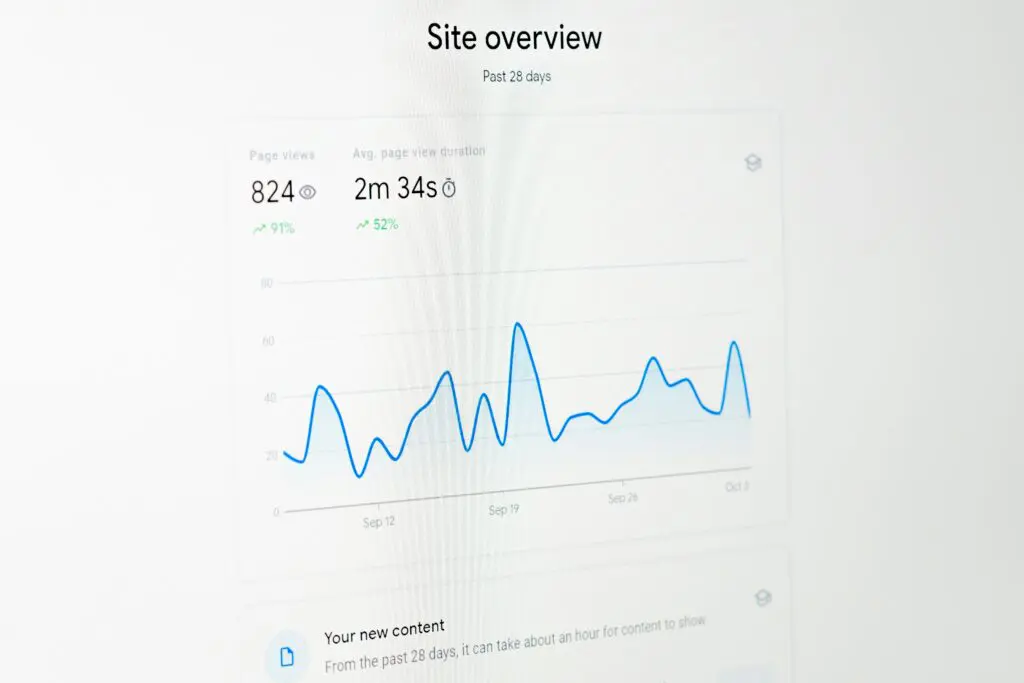Search Engine Optimization (SEO) is a cornerstone in digital marketing, but it’s filled with misconceptions and myths. These myths can hurt your website’s online presence and search rankings.
Meta Keywords Still Matter
Many think meta keywords are still important for search rankings. But this is not true. Google stopped using meta keywords in 2009.
Meta keywords don’t affect your website’s rankings. Instead, focus on making your meta titles and descriptions catchy to get more clicks.
More Backlinks Equal Better Rankings
Some believe getting lots of backlinks will improve your rankings. But it’s not about how many backlinks you have. It’s about the quality of those backlinks.
- Relevance: Is the linking site relevant to your content?
- Authority: Is the linking site authoritative and trustworthy?
- Diversity: Are the backlinks coming from a diverse range of sources?
Social Media Signals Directly Impact SEO
Many think social media likes and shares affect search rankings. But, social media signals don’t directly impact SEO rankings.
Yet, a strong social media presence can help your SEO indirectly. It can:
- Boost your brand awareness and drive traffic
- Encourage shares and links to your content
- Improve your online presence and credibility
By clearing up these SEO myths, businesses can improve their online strategies and presence.
Content Length and SEO: Separating Fact from Fiction
Content length has been a big topic in SEO talks. But, is it really about how long the content is? Many SEO experts say no, it’s not just about length.
Studies show there’s no one-size-fits-all length for SEO. What’s key is the content’s quality and how well it matches what users are looking for. Creating content that’s valuable and engaging is more important than its length.
When making content, think about what the user wants to know. Give them detailed answers to their questions. While longer content might have more keywords, it doesn’t always rank higher.
Short, to-the-point content can also work well. It’s all about knowing your audience and making content that meets their needs.
| Content Characteristics | Ideal for SEO | Not Ideal for SEO |
|---|---|---|
| Length | Comprehensive but concise | Unnecessarily long or thin |
| Quality | High-quality, engaging | Low-quality, keyword-stuffed |
| Relevance | Relevant to user search query | Irrelevant or misleading |
In short, while content length is a part of SEO, it’s not everything. Quality, relevance, and how well it meets user needs are more important for better rankings. Focus on these to make content that connects with your audience and boosts your site’s visibility.
Technical SEO Myths That Could Harm Your Website
It’s key to clear up technical SEO myths to boost your website’s ranking. Many businesses don’t know the tech aspects that affect SEO. Knowing these is vital for a good digital plan.
SSL Certificates: Not Just for E-commerce
Many think SSL certificates are just for online shops. But, they’re now a ranking factor for all sites. Google values a secure browsing experience, and SSL is a key step. It’s not just for safety; it also boosts your site’s trust and ranking.
The Necessity of Mobile Optimization
Some think mobile optimization is optional. But, most internet users visit sites on mobiles, making it essential. Google’s algorithms prefer mobile-friendly sites. If your site isn’t mobile-friendly, your rankings will likely fall.
- Make sure your site works well on all screen sizes.
- Use Google’s Mobile-Friendly Test to check your site.
- Work on making your site load faster on mobiles.
Site Speed: More Than Just User Experience
Some think site speed only matters for users. But, it’s also key for SEO. Slow sites get lower rankings from search engines. To speed up your site, optimize images, use browser caching, and reduce CSS and JavaScript files. A fast site keeps users happy and boosts your rankings.
Local SEO Misconceptions for Canadian Businesses
Misconception 1: Local SEO is only for brick-and-mortar stores. It’s true that physical stores gain a lot from local SEO. But, service-based businesses in specific areas also need to boost their online presence to find local customers.
Google My Business is vital for local SEO. It helps manage your online presence on Google, including Search and Maps. Claiming and optimizing your Google My Business listing is crucial for showing up in local searches.
- Verify your business listing to ensure accuracy.
- Respond quickly to customer reviews.
- Use the posts feature to share updates and offers.
Local citations are also key in local SEO. These are mentions of your business on other websites, like directories and review sites. It’s important to keep citations consistent across the web to boost local search rankings.
| Local Citation Sources | Description | Importance |
|---|---|---|
| Google My Business | A business listing on Google | High |
| Yelp | A review site for businesses | Medium |
| Local directories | Industry-specific or region-specific directories | Medium to High |

The role of location in search engine rankings is huge. Search engines like Google give priority to results based on the user’s location. This makes local SEO essential for businesses wanting to attract local customers.
By tackling common local SEO myths, Canadian businesses can boost their online presence. This will help attract more local customers and increase sales.
The Reality of Algorithm Updates and Rankings
Algorithm updates happen often. It’s important to know how they affect your online presence. Here are some common myths about these updates and their impact:
Google Penalties Are Impossible to Recover From
Google penalties can be tough, but you can recover. The first step is to find out why you got the penalty. Then, fix the problem. This might mean fixing technical issues, changing your content, or improving your links.
- Identify the cause of the penalty
- Take corrective action
- Submit a reconsideration request to Google
Algorithm Updates Target Specific Industries
Algorithm updates aim to improve search results for everyone, not just certain industries. But, some industries might see bigger changes. This is because of their unique needs or the presence of spam.
Key factors influencing the impact of algorithm updates:
- Quality of content
- Relevance of keywords
- User experience
Rankings Fluctuations Always Indicate Problems
Rankings changes are normal. They can be due to updates, but also other things like user behavior or what your competitors are doing.
To handle these changes well, it’s key to:
- Keep an eye on your rankings
- Look at changes in search volume and what your competitors are doing
- Adjust your SEO plan as needed
Modern SEO Best Practices vs. Outdated Beliefs
Today, SEO isn’t just about using lots of keywords or tricking backlinks. It’s about making websites easy for users and search engines to navigate. Google says a good site is mobile-friendly, loads fast, and offers valuable content that meets user needs.
Key Principles of Modern SEO
- Focus on user experience and intent
- Create high-quality, engaging, and relevant content
- Ensure technical optimization for crawlability and indexing
- Prioritize mobile-friendliness and page speed
Here’s a comparison of new and old SEO methods:
| Aspect | Modern SEO Practice | Outdated SEO Belief |
|---|---|---|
| Content Focus | Quality, relevance, and user intent | Keyword density and quantity |
| Link Building | Earning high-quality backlinks through valuable content | Manipulating backlinks through spammy tactics |
| Technical Optimization | Mobile-friendliness, page speed, and crawlability | Keyword meta tags and excessive internal linking |

Moving Forward with Evidence-Based SEO Strategies
By understanding the truth behind common SEO myths, businesses can create effective digital marketing plans. These plans help them achieve their goals.
To succeed, businesses should focus on real, evidence-based SEO strategies. This approach helps them use their online potential fully. It brings more visitors to their site and helps them meet their digital marketing objectives.
